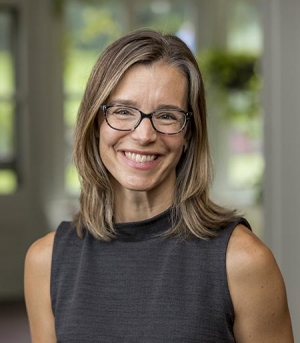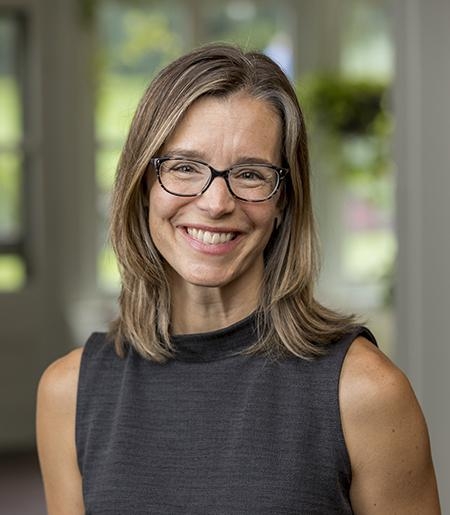In Dr. Dana Powell's Spring 2018 Honors seminar, Native Americans/Indigenous Studies, students got first-hand experience using the Visual History Archive (VHA) of genocide studies at the University of Southern California (USC) Shoah Foundation . Dr. Powell is an associate professor in the Department of Anthropology at Appalachian State University, whose research focused on the Native American Navajo/Diné Nation was recently awarded a Cornell University Society for the Humanities (SOH) Fellowship for the 2019–20 academic year.
The VHA of the USC Shoah Founcation is the largest collection of audio-visual testimony by Holocaust survivors to date and is expanding to focus on a range of other genocides as Dr. Powell's work suggests. Dr. Thomas Pegelow Kaplan, Leon Levine Distinguished Professor, and Director of the Center for Judaic, Holocaust, and Peace Studies, garnered support and brought the VHA to Appalachian in May of 2017. It has become a key resource of the Center for Judaic, Holocaust, and Peace Studies benefitting Appalachian students and faculty including a new Fall 2020 visiting senior faculty fellow, in addition to public school teachers.
Dr. Powell's Spring 2018 Honors seminar was recently highlighted by the USC Shoah Foundation as an example of how professors are using the VHA in undergradate teaching. Click here to read that full story by Dr. Badema Pitic, Badema Pitic, the Visual History Archive Program Coordinator at the Center for Advanced Genocide Research for the Shoah Foundation at the University of Southern California. In that story, Dr. Powell reflects,
“'The Visual History Archive testimonies helped students to think critically and comparatively…' For the component of the class dedicated to genocide and settler colonialism, students were assigned research projects in the Visual History Archive (VHA), with the goal of giving them research experience with comparative genocide studies methods. Considering the absence of recorded survivor stories about the Native American genocide, the VHA testimonies helped students to think critically and comparatively about and amidst the lack of such sources."
The seminar description for this course further explains:
Students in this seminar will become familiar with Native American/Indigenous Studies (NAIS) as a body of critical theory and cultural critique, and will explore urgent issues facing North American Native Nations today. We will approach these goals through the linked concepts of indigeneity and settler colonialism. This seminar will foster an anthropological-ethnographic and global perspective on what settler colonialism looks like today, in culturally specific conditions, through considerations of genocide, representation, recognition, repatriation, gender, race, citizenship, and decolonization. The emphasis will be on settlement and resistance in North America, though we will consider other cases from Australia, New Zealand, Palestine, and South Africa. Our goal is to understand how indigeneity and settler colonialism are both theoretical concepts and lived experiences, fostering a diverse range of responses (e.g., decolonization theory and practice, expressive culture and art, and sociopolitical movements). Students will be exposed to a range of critical voices, including native and non-native scholars, fiction writers, artists, and activists. Course content will cover key issues in the U.S. history of legal and political exclusion and inclusion of indigenous peoples; comparative histories of colonialism and genocide; relationship between sovereignty, citizenship, and recognition; artistic movements and performance; and the ongoing frictions between settler and native epistemologies.
Reflecting on the value of the VHA and it's application in classes like Dr. Powell's at Appalachian, Dr. Pegelow Kaplan said,
"In short, the cooperation with the USC Shoah Foundation is of critical importance for the Center for Judaic, Holocaust, and Peace Studies, has already benefited many at ASU and will, undoubtedly, help many more who wish to gain insights into modern genocides. Classes like the one offered by Dr. Powell play an important role in the process and are a clear sign of the growing success of our Center's endeavors in NC, the US, Israel and beyond."
Stay tuned to see if Dr. Powell comes back to offer this seminar again in the Honors College!

